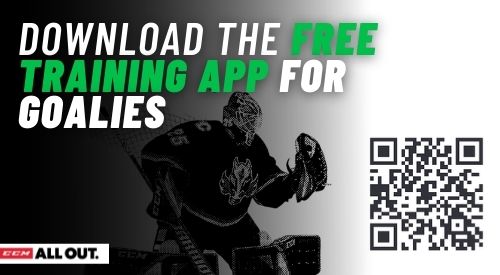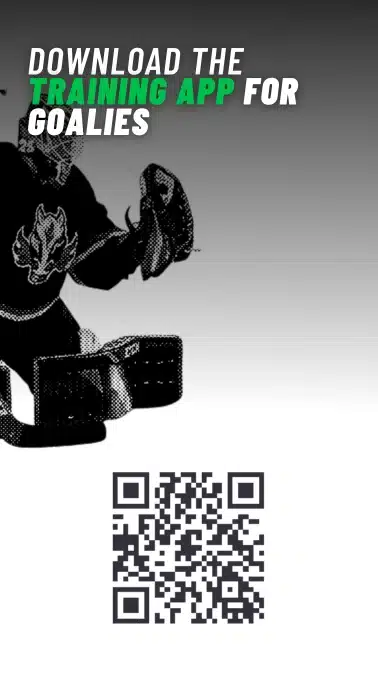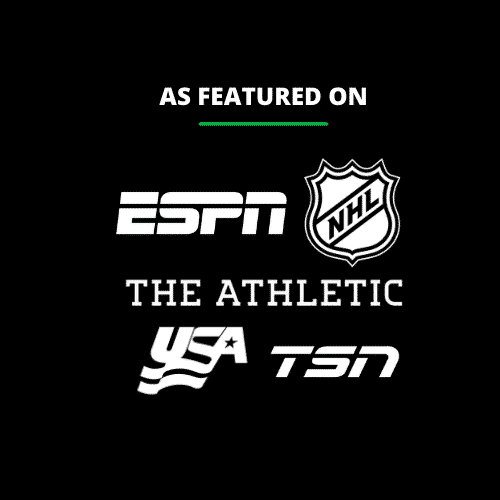This article was contributed by Steve Carroll, of Carroll Goalie School. Follow Steve on Instagram @carrollgoalieschool
How team coaches can help develop young goalies
More youth hockey coaches need to change the way they currently do business and improve on how they work with their goalies. Coaches need to break out of their comfort zone, so goalie development becomes a priority during the season and not an after thought.
Some coaches believe that as long as their goalies are seeing pucks during practices they are getting better. That’s not necessarily the case. Coaches need to consistently work with their goalies so they get better every time they are on the ice.
Some hockey associations hire professional coaches to train their goalies periodically during the season. While this is certainly a step in the right direction, it’s not an acceptable excuse for a team’s coaches to forget about goalie development during practices.
A post shared by Steve Carroll (@carrollgoalieschool) on
This embedded Instagram post shows Steve Carroll working on a balance and edge control with a few of his youth goalies.
Goalies spend most of their time on the ice with teams, not at clinics
The reality is, goalies spend considerably more time on the ice with their team during a season than they do at any association goalie clinic.
Constructive/productive use of a team’s practice time, in addition to any goalie clinic, is the key to developing goalies.
Figuring out how to coach goalies can be a challenging and intimidating aspect of the job for many coaches, especially for those who did not play the position.
Youth goalie coaching tips
Here are some goalie coaching tips that can help:
- A child who plays goalie should be treated like any other player on the team.
- Successful goalies compete, are consistent and play with confidence; build a goalies confidence, improve their play, improve a team’s win-loss record.
- Coaches should not be developing back-up goalies. Kids sign up to play hockey, not to sit on the bench. Look at a rotation where the goalies split games or split periods.
- Assign someone to be team’s goalie coach and encourage them to learn as much as they can about the position.
- Schedule 7-10 minutes of each practice hour for goalie coach to work with the goalies on individual skill development. Make sure to write this down on practice plan. Give the goalie coach time and space to work on the ice.
- Goalies are not shooting targets for players or coaches. They should be treated with respect. Coaches need to stop reliving their glory days as a player by blasting shots past their goalies to show everyone who is watching that “they still have it.”
- Make sure goalies gets a good pre-game warm-up with plenty of quality, stoppable shots. Which means rethinking the use the loop and shoot drill to warm-up the goalies.
- Encourage goalies to participate in drills and games that improve skating, challenge them to get better on their edges and become stronger skaters.
- Coaches should shoot the puck at appropriate speed/locations to properly challenge to the goalies.
- Encourage goalies to be leaders and not followers. For example, move them to front of the line during team skating drills like Russian circles and not have them at end of the line because they skate slower than others.
- Teach goalies to treat every shot like it means something in practices and games and to be accountable for their effort and performance.
- Coaches should build on what’s being taught at the in-season goalie clinics during team practices.
- Encourage goalies to work on their puck handling and shooting skills.
- Set up goalies for success. Control pace of team drills so they have time to get ready for each shot and into position to play rebounds.
- Have goalie coach review game performance prior to next ice time, not immediately after a contest. Be they sure to point out good saves and others things the goalie did well during the game along areas that need improvement. Avoid just focusing on the goals allowed.
- Dress youth goalies appropriately, they should have helmets built for youth goalies, and appropriately sized equipment
- It’s always about stopping the next shot a goalie faces.
- Coaches need to control their reactions/emotions on bench when goalie gives up a goal. Goalies typically feel bad enough when they get scored on and it doesn’t help the situation when they look at bench and see coach upset and/or screaming at them.
- Stick to the basics, most goalies need to improve fundamental skills. Successful goalie development includes quality repetitions.
Steve Carroll is also Minnesota Hockey’s Goalie Coordinator. There is a lot of excellent goalie development information available, including age appropriate practice plans, at www.usahockeygoaltending.com.







